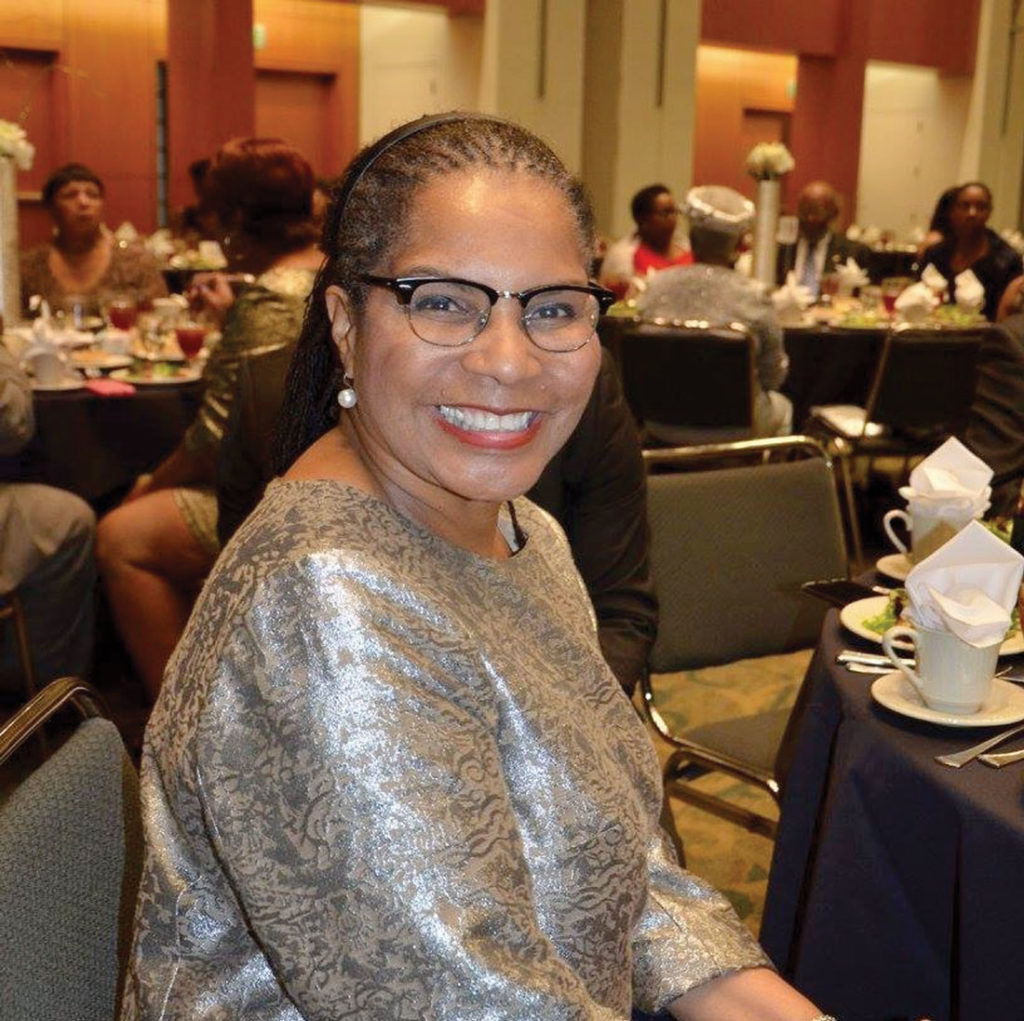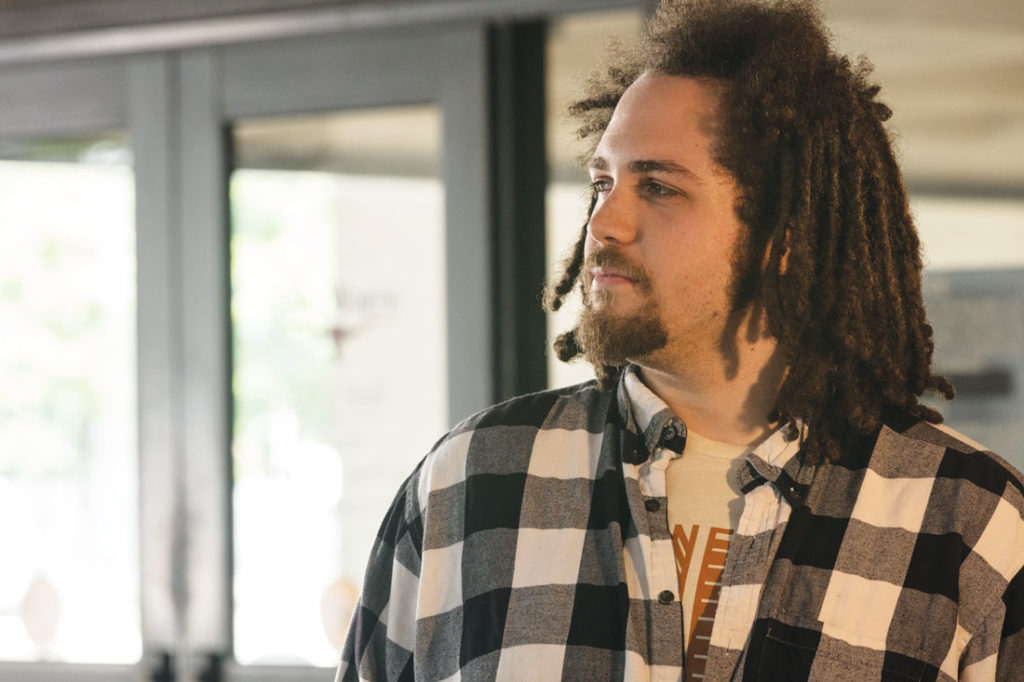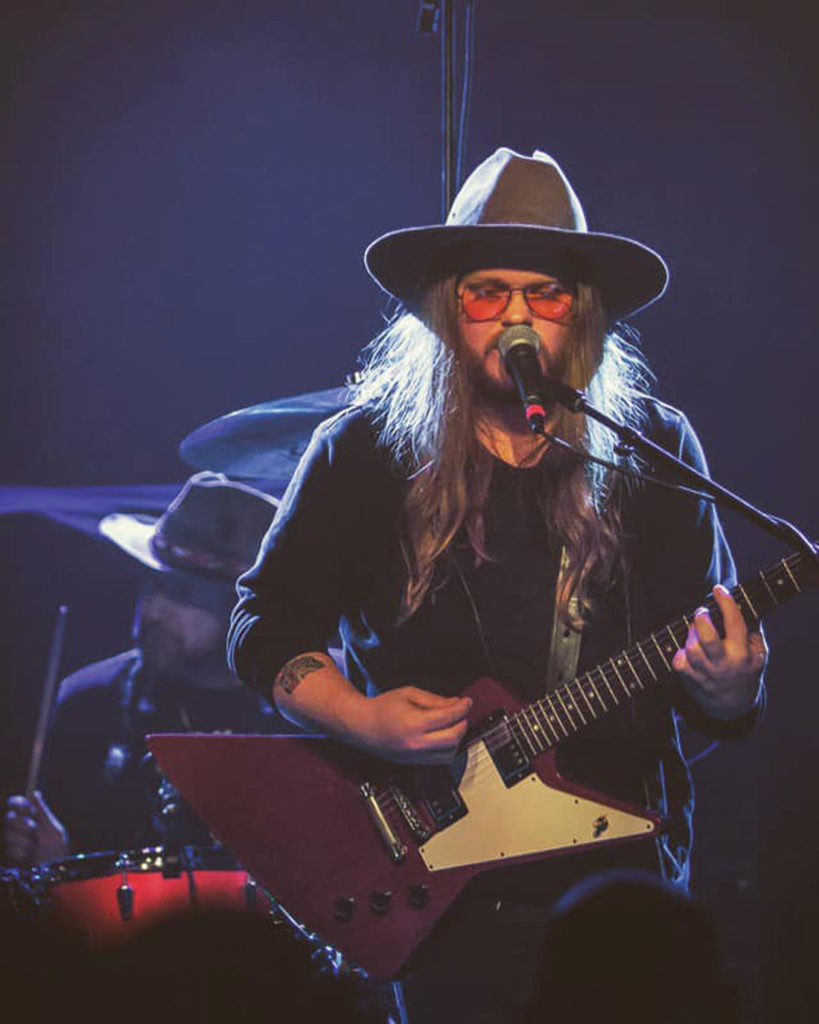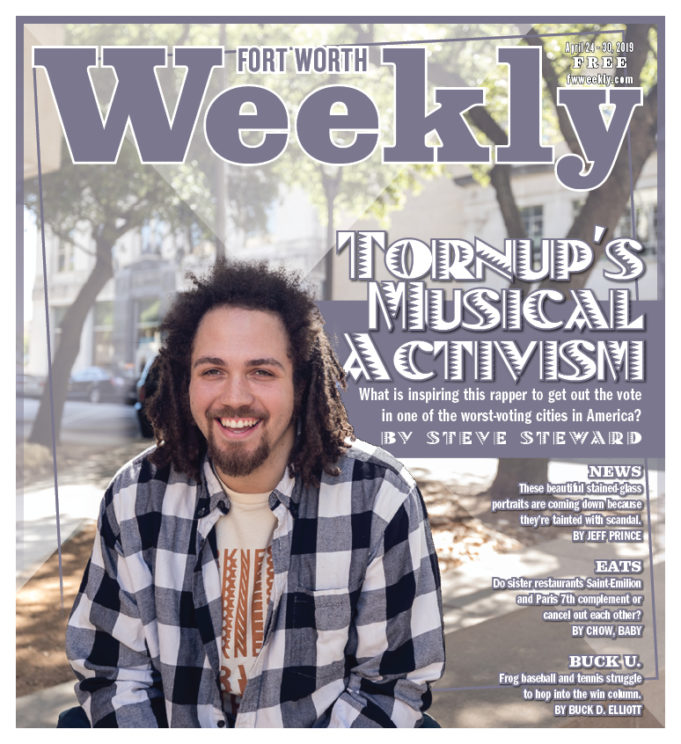“So, what are you gonna do now?”
This is the question I asked Tornup, seated across a table from me at a local bar where we met up to discuss his latest album, You Will Never Understand (the State of Soul), during the first week of March. I recall glancing at my phone to check the time. It was nearly midnight, which was funny, considering that I started interviewing him at 9 p.m., thinking I’d need maybe an hour to get the gist about what his new record was about and where it came from. But Tornup has a lot to say, and we didn’t even get to talking about his record until long after our conversation had meandered around bass, and grace, and quantum physics, plus the tale of the time he went to jail for jaywalking. There’s obviously a lot more to that story roiling beneath the surface of a rhetorical hook, but that’s kind of also a good way to describe Torry Evan Finley. The dude has a lot going on.
At face value, Tornup is a musician currently working in the idiom of rap, but previously he was the bassist for the now-defunct psychedelic doom band Space Beach. He’s perhaps best known stylistically for his gravelly-voiced polysyllabic flow on the mic and his percussive yet melodic approach to bass, both of which, when he performs live, showcase dizzying feats of mental acrobatics. His songs are deceptively brief the way an anthill is deceptively small: Both are densely packed with twists and turns and often boil over in fiery, stinging fury, yet just as often, he looks for hope and positivity, displaying intellectual curiosity and a search for spiritual fulfillment.
Tornup is a socially conscious artist. In February, he and DJ Sam Culp with another Fort Worth rapper, Wrex, performed at a popular West Magnolia Street bar in support of 2019 mayoral candidate Deborah Peoples, who spoke briefly to the near-capacity crowd prior to their sets. Peoples, current chair of the Tarrant County Democratic Party, is an African-American progressive running against Betsy Price, a four-term incumbent Republican and staunch defender of the notorious Fort Worth Way. I’d like to say that Price’s folksy, Baby Boomer-y whiteness is irrelevant, but this is Fort Worth, a city where a gaggle of jackoffs stand across the street from the Stock Show & Rodeo every year holding Confederate Flags. By inference, a white lady running against a black one probably holds the advantage in this city, and while I’m more than a little cynical, here in the heart of the reddest county in America, Peoples beating Price sounds like some pretty long odds, especially when you consider that the voter turnout in Fort Worth’s local elections is “abysmally low,” a phrase I didn’t think up but instead discovered in a 2017 Portland State University study on local election participation among 50 American cities. Of that list, Cowtown ranks a face-palmingly embarrassing 49th, with a paltry 6.48 percent of eligible voters showing up for city elections. If you are wont to complain about the elected officials who run Fort Worth, I hope you went to the polls and voted for someone else when you last had the chance.

I didn’t ask Tornup if he voted in the last election. He’s 26 and a citizen and isn’t a felon, so he was certainly able to. And when we ended that conversation back in March, he didn’t have a concrete answer about what, in terms of community action, he planned to do next. But a couple of weeks after our interview, I saw a Facebook post he’d made about a show to benefit Peoples’ campaign at Lola’s Saloon this Saturday. Since then, that lineup has grown from Tornup and Sam Anderson, the frontman for the Quaker City Night Hawks, to Ansley, Gollay, Lorelei K, and Alexandra Rhea. Peoples is also slated to speak, rounding out a bill that includes multiple races, genders, and sexualities. According to Tornup, the bill’s diversity was by design, and it sends a message that perhaps Price’s incumbency, derived from running unopposed in a city where fewer than 7 percent of its eligible voters weighed in on who should be mayor, isn’t all that representative of a population of nearly 875,000 people.
The concert Tornup has organized is explicitly in support of one candidate, but, more broadly, he is trying to encourage people to vote.
“Honestly, I think letting people know when to vote is crucial,” he said. “I get the impression that this city doesn’t want people to know that.”
As I write this, I can already imagine the grumbling about why this guy you don’t know or align with or whatever is getting a voice in the local alt-weekly. And you know what? If you’re making that gripe, you’re kind of right: Tornup is not the only activist in this city, nor is he the only young person, black person, or creative person who is working to effect change in Fort Worth. His is also not the only point of view. But, for this week anyway, his voice is the most relevant, or at least the most immediate, as is his cause of increasing electoral engagement. Moreover, he’s also doing something that occurs in an actual real-life space and bears actual, real-life stakes on a local level. It’s more than a Facebook rant or an Instagram like, and if winding your way through this increasingly prolix profile of him increases the likelihood that you will exercise your right to vote, then activism works. And if one local musician (or, in the case of the Deborah Peoples benefit, six of them) can nudge the boulder of change in this city, think what a bunch of them can do.
*****
You can read for yourself that Portland State study (Whovotesformayor.org), which is obviously far more informative than I am. For currently registered voters, early voting goes through Tuesday, April 30, with election day slated for Saturday, May 4. If you’re a millennial, or at the upper end of Gen Z or, I dunno, a baby who will one day be an adult living under the auspices of future Fort Worth officials, two of the study’s findings will probably appall you: 25.7 percent of registered voters over the age of 65 vote, as compared to 1.1 percent aged 18-34. That translates into the second one: Voters 65 and older have 56 more times the electoral clout than voters aged 18-34. I don’t want to say that old people are always wrong, or bad, or acting against the interests of everyone else who is not an old person, but not voting essentially allows a small segment of Fort Worth’s population to have most of the say. Doesn’t that sound sort of crazy? I mean, would you let a senior citizen pick out your clothes? I kid, but I hope you see my point, that widespread participation in local democracy keeps power from being concentrated in a single group. It’s also Tornup’s point, the main reason why he wants you, as a registered voter, to come to his benefit concert on Saturday and hear what Deborah Peoples has to say.
This is basically a commercial for voting, so here’s the part that ties into what has made Tornup an activist, and while that narrative segue is about as gracefully executed as the stitches on Frankenstein’s forehead, you’ll probably want to know where Tornup is coming from and why you should take him seriously. Tornup, 26, is of mixed race. His father is black, and his mother is white. As a child, he bounced back and forth between his dad’s people in Oklahoma City and his mom’s in North Texas, living and attending schools in Grapevine, Arlington, and Fort Worth, attending high school at both Grapevine High and Paschal before dropping out in his junior year.
Eventually, Tornup would get his GED “with honors,” he said, chuckling, but around the time he left formal education, he largely devoted his time to music. His father was a guitar player who schooled him in a wide range of sounds.
“He’s a really strange dude,” Tornup said of his dad. “He was a jock, a computer nerd, and a music nerd all at the same time. … But if you look at his CD and vinyl collection, it is so fuckin’ random. He’d listen to The The, and Parliament, and he got me into Frank Zappa and the Stooges.”
Tornup started a band in his teens with friends Jake Rothchild and Tanner Billings, in a strikingly organic fashion.
“When we started,” Tornup said, “I was holding the bass, Tanner was on drums, and Jake was holding a guitar, and I was like, ‘OK, I guess this is my thing right now.’ ”
That band was called Sixteen Flights, and it eventually turned into Space Beach, a name that, according to Tornup, Billings came up with to describe the effects-heavy jams that occasionally coalesced into surf-leaning guitar riffs. Billings was eventually replaced by drummer Jesse Jones, and after a few years, when Rothchild became a father and Jones got married, Space Beach dissolved into the netherworld of short-lived local bands.
During Tornup’s sophomore year in high school, Billings encouraged him to try rapping. “I was making [Billings] beats, and he would rap on them, and he was like, ‘You should hop on one of these tracks with me,’ ” Tornup recalled. “I didn’t think it was really my thing, but he said, ‘You and me are heads. We care, at least, and most of the stuff on the radio, they don’t care.’ And I thought, ‘Yeah, I like that shit,’ so he talked me into rapping.”
When Tornup began to rap as a solo artist, he would use beats from a producer named Arkatype, filling them out with his own bass-playing and mixing them himself before distributing his music on Soundcloud and Bandcamp. With You Will Never Understand (The State of Soul), however, he upped the production quality, giving the Arkatype tracks he’d rapped over to engineer Peter Wierenga (Siberian Traps, Jake Paleschic) for mixing and Jordan Richardson (Son of Stan, Oil Boom, Joe Gorgeous) for mastering.
You Will Never Understand (The State of Soul) is Tornup’s sixth release, following his 2014 debut album, Medicinal Fretwork, and four subsequent EPs.
“Each one was gonna be a different pillar of what my artistry is or whatever,” Tornup said. “The first one, Impossible Dreams, that’s like competitive rap shit. Then I put out a live thing, The Go Off, with me and Bert [Perez, his original DJ], because a lot of what we were doing was improvisational, and it had such a unique sound. And then I did Colliderscope (Ephemeral Hangs), where I just tried to get it out as quickly as possible. The fourth one was Utopian Vanguard (Heart of the Funk), and that one was about Fort Worth and got kinda heady toward the end. But once I became a Christian, everything fuckin’ changed.”
*****
If given the opportunity, Tornup would probably talk all day about his faith. Though he’d grown up going to church, the combination of congregational hypocrisy and the instability of his early childhood led him to identify as an atheist, and it wasn’t until he began writing Colliderscope/Ephemeral Hangs that he gave Christianity another chance.
“I grew up in a hostile environment [on the east side of Oklahoma City], and I was also going to church at the same time,” he said. “I don’t want to over-dramatize my involvement with this, but the people I grew up with … one cousin is the victim of a drive-by shooting. He can’t walk. And my other cousin was the one killed by the police. Everybody else, gang members. … I was a little more removed from the situation. I was going to this prep school that was like an annex of a poor school, sort of like a magnet school. My parents … it wasn’t a great situation, let’s put it that way. My mom was here, my dad was up there.”
He declines to name the church he attended as a teenager, but it wasn’t a good place for him.
“It wasn’t theologically based, it wasn’t passion-based, and that put me off Christianity,” he said. “And once I had the questions –– ‘What is God?’ ‘Where does God come from?’ –– I didn’t want there to be a God. I was trying to answer those questions myself, and I was like, ‘Well, there must not be a god.’ And every time I was researching that stuff, I was seeking that atheist narrative out. I wasn’t consciously angry at God, because I didn’t believe God existed, but when I got older … I had some experiences that led me to believe that there is more than meets the eye.”
What Tornup told me next borders on mystical, or at least the kind of thing that happens to your brain when it’s been treated to some psilocybin, but he swears he wasn’t on any drugs. I take him at his word.

“One time,” he said, “I was on my porch, sober, and out of nowhere, I had this feeling –– you know about Photoshop and shit, right? How it has that opacity [function]? So everything I was feeling, seeing, all my senses, it was like 50 percent that and then 50 percent something else. And that other thing, it felt like it was showing me something, but it felt like I was in this protective bubble and could see into the other things that were happening beyond my naked eye. Like frogs. Some frogs see the sky as yellow because it helps them see the bugs they need to see, so [I know] my perception is limited, too. But this is crazy –– I can’t believe I’m telling you this –– it was like I was seeing things traveling from the plants, from the grass, to the air, to the flowers.”
Admittedly, that’s some trippy shit, but then again, there are tons of churches named for St. Paul, the man who changed his name from Saul after being supernaturally blinded and then restored to full sight upon being touched by God’s grace.
“Later,” Tornup said, “the more I got into quantum physics and stuff like that, like the double-slit experiment, [I learned] there’s a consciousness to all emotion. We aren’t just these pieces of matter floating around. … Like no, our feelings and observations and awareness of underlying intention affect the things that we perform, so where does that consciousness come from? So I’m more open at this point to not having this confirmation bias of like, ‘OK, I need the answer to be this.’ ”
Tornup began trying out churches, and at one service with his mom and his girlfriend at the time, a sermon by a guest preacher stuck a chord with him.
“He was talking about King Saul trying to put all that armor on David before he fought Goliath,” Tornup recalled, “and the whole sermon was about how you can’t dress people for their battles. … And I felt validated. I had this pent-up anger I hadn’t addressed or really was even aware of. And then the preacher flipped it, where he was like, ‘Yeah, but later on in David’s life, there was this whole village that was trying to stone him to death, and he couldn’t pick up a rock and throw it back because he knew who God is.’ And I was super-humbled, crying and shit. And that was the first instance of me thinking God was better than me trying to take the reins. And then later on, I went to see a coworker named Faith, and I went to go see her sing in the choir at her church. And the sermon there was the first of a two-part series on Creationism. And at the end, I thought, ‘OK, I wanna see what he has to say next week.’ And five months later, I was baptized.”
Tornup currently attends The Paradox Church downtown and plays bass in its band. My read on his faith is that he truly values the concept of grace. In his words, “there are sinners, and there’s Jesus’ love for us.” His appreciation for grace manifests itself in the characters’ stories he raps on You Will Never Understand, where criminals and cops alike become multidimensional, empathetic shakes. And I think grace and respect for his fellow men are what drive Tornup to be more than just a musician and take action as a community activist.
But that drive is also a result of his own experiences –– the situation where he ended up in jail related to a jaywalking charge could fill a cover story’s length on its own, but the gist is that in 2012, when he was 19, he was walking alone down Magnolia at night when he caught the eye of a cop sitting in his car in the parking lot of Ellerbe Fine Foods. The cop followed him onto 6th Avenue, after which he turned on his flashers. Tornup reacted calmly, but the cop ordered him to the side of his car and out of view of its dashboard camera, after which Tornup was wrestled to the ground, cuffed, and then put through an hours-long ordeal in which the cop tried to find a reason for stuffing him in the back of his patrol car, culminating in a jaywalking ticket, which Tornup refused to pay out of protest. When it went to warrant, he sat in Tarrant County jail for 11 days. After that, he attempted to lodge a formal complaint with a sergeant on duty at the Fort Worth police storefront on Hemphill Street, but the sergeant essentially told him that it would sit on his desk because that cop wasn’t a “loose cannon,” that he was actually a “good worker.”
Then there was the cop-on-African-American-citizen-violence that came to widespread attention in 2016.
“Philando Castile, Eric Garner, Alton Sterling, everything reached a breaking point for me,” Tornup said. “Then some people from my church started a community group called CommUnity FrontLine. They had a meeting after all that happened, and they wanted to find ways to stand against what is happening between police and communities of color.”
The meeting was packed with citizens, as well as police officers there to speak to the situation.
“This was after those Dallas police officers had been shot, too,” Tornup said, “so you had police there whose brothers had recently been killed, and then us from the community, who were there to express how we feel about something that’s been going on for quite some time, especially after Trayvon Martin. You had these two groups of people voicing their concerns … and that’s basically where I got my foot in.”
In January 2017, Tornup organized a rally to protest the light disciplinary action given to Officer William Martin –– a 10-day suspension and clearance of any wrongdoing –– in response to the level of force he used while arresting Jacqueline Craig and her two minor daughters after a neighbor called the cops on her because she angrily reacted to his putting his hands on her young son, who had allegedly littered. Supporting Deborah Peoples makes sense for Tornup.
“I didn’t even know someone was running against Betsy Price at first,” Tornup said, “but as time went on, I thought there should be an opportunity for her speak to people directly. I’ve dealt with Betsy Price as a citizen … and she was addressing the black community, who were expressing their concern about that situation, an assault on their children and then getting thrown in jail because of it, and Betsy Price said, ‘I’m not here for a bitch session.’ Verbatim. … She’s apologized for it, so right on, but I’m not comfortable with her as my mayor. In my mind, a woman of color, as a contrast to Betsy Price, is worth banking on, so I thought it was a super-dope opportunity, and once I heard [Peoples] speak, I thought, ‘Yeah, this feels right.’ ”
With help from Autumn Brackeen, who co-owns the popular Magnolia hangout The Boiled Owl Tavern, Tornup booked that show in February that drew a crowd in front of Peoples to hear her speak, and in the wake of that show, using the stage for social change has charged up Tornup’s circuits. The benefit on Saturday has allowed him to network with like-minded artists.

“I’ve talked a lot with Sam [Anderson],” Tornup said. “He has a heart for these issues. He is a scholar of black music and has a sincere appreciation for the struggles of the black community. Gollay has been willing to lend her voice to political events. Same for Loralei K. Ansley and Alex Rhea, both strong women whose music I appreciate.”
The cover is $10 at the door, which will go to Peoples’ campaign.
Tornup knows he’s still new to the activist game, but he is ready to learn and do what he can.
“I have a lot to learn, I know,” he said. “I just want people to know there’s an election. I don’t feel like Betsy Price represents Fort Worth. I do believe that old Fort Worth, the Fort Worth Way, it’s not in their interest for more people to vote. And I want more people to vote.”
Thinking about the contemporary intersection between musicians and political engagement, Tornup said, “I think the thing about an era like the ’60s, where folk music and political engagement seemed to be operating hand-in-hand, is that, essentially, people who weren’t sure how to change the status quo were willing to try things to see what worked. The sit-ins, the rallies, the protests weren’t the ultimate solution, but those efforts helped the participants gain a scope for where the problems were lying systemically, and by working together and sharing their ideas based on those experiences, they gained better perspective on how they could best leverage their total resources to effect change in those problematic areas. And that actually did change laws, prison sentences, representatives … .
“In the generations following,” he continued, “the inspiration and passion are still there, but we look at things like sit-ins, or other forms of protest, and we see how the problems at large still continue after those protests, and we assume that the protests were ultimately not worthwhile as a whole. We think about how little we may know individually or what impact we feel we could have as one person, and we become discouraged from engaging and empirically seeing what works. Sometimes, it’s just rewarding and even helpful to have your finger on the pulse of what’s happening in your community in a variety of different facets. No one is perfect at it, and pretty much every ‘result’ that has come from me engaging my community so far has, at the end, looked like, ‘I learned something,’ but, ultimately, that results in me being able to offer and collaborate on better initiatives in my community. And when we come together and offer our different, collectively not-perfect perspectives to each other, I think it leads to a healthier and more informed environment. If I can play a show, attend a meeting, share a piece of information, or organize an initiative to encourage someone else in Fort Worth and help them feel like it’s OK to put themselves out there to simply learn something with me, then I feel like that’s worthwhile.”












